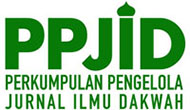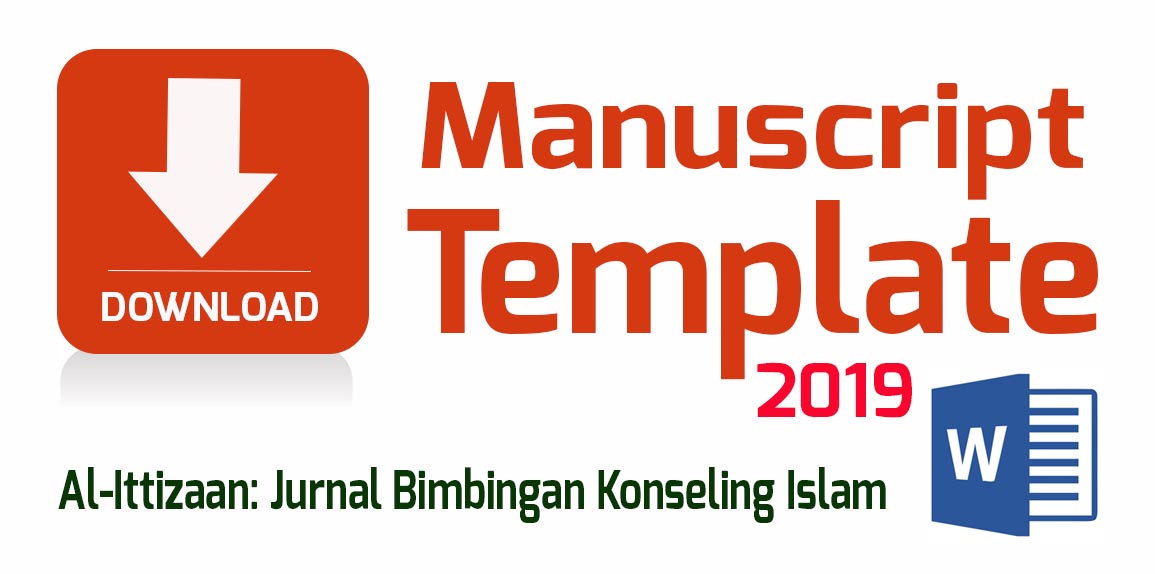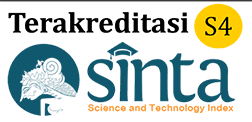Keberhasilan Karir Guru: Psychological capital Sebagai Landasan Utama
Abstract
Keywords
Full Text:
PDFReferences
Afdal, A., Iswari, M., Alizamar, A., Ifdil, I., Syahputra, Y., & Nurhastuti, N. (2019). Career planning differences between male and female deaf students. Specialusis Ugdymas, 1(39), 99–108. https://doi.org/10.21277/se.v1i39.409
Anwar, M. (2018). Menjadi guru profesional. Prenada Media.
Avey, J. B., Luthans, F., Smith, R. M., & Palmer, N. F. (2010). Impact of positive psychological capital on employee well-being over time. Journal of Occupational Health Psychology, 15(1), 17–28. https://doi.org/10.1037/a0016998
Bandura, A., & Locke, E. A. (2003). Negative self-efficacy and goal effects revisited. Journal of Applied Psychology, 88(1), 87–99. https://doi.org/10.1037/0021-9010.88.1.87
Baruch, Y., Szűcs, N., & Gunz, H. (2015). Career studies in search of theory: The rise and rise of concepts. Career Development International, 20(1), 3–20. https://doi.org/10.1108/CDI-11-2013-0137
Bouzari, M., & Karatepe, O. M. (2017). Test of a mediation model of psychological capital among hotel salespeople. International Journal of Contemporary Hospitality Management, 29(8), 2178–2197. https://doi.org/10.1108/IJCHM-01-2016-0022
Doğan, H. (2014). Examination of contemporary career decision making approaches and models. OPUS International Journal of Society Researches, 4(6), 100–130.
Eryılmaz, A., & Mutlu, T. (2017). Yaşam Boyu Gelişim Yaklaşımı Perspektifinden Kariyer Gelişimi ve Ruh Sağlığı. Psikiyatride Guncel Yaklasimlar - Current Approaches in Psychiatry, 9(2), 227–227. https://doi.org/10.18863/pgy.281802
Ferradás, M. del M., Freire, C., García-Bértoa, A., Núñez, J. C., & Rodríguez, S. (2019). Teacher profiles of psychological capital and their relationship with burnout. Sustainability (Switzerland), 11(18), 5096. https://doi.org/10.3390/su11185096
Fredrickson, B. L. (2004). The broaden–and–build theory of positive emotions. Philosophical Transactions of the Royal Society of London. Series B: Biological Sciences, 359(1449), 1367–1377.
Freire, C., Ferradás, M. D. M., García-Bértoa, A., Núñez, J. C., Rodríguez, S., & Piñeiro, I. (2020). Psychological capital and burnout in teachers: The mediating role of flourishing. International Journal of Environmental Research and Public Health, 17(22), 1–14. https://doi.org/10.3390/ijerph17228403
Hmieleski, K. M., & Carr, J. C. (2008). The relationship between entrepreneur psychological capital and new venture performance. Frontiers of Entrepreneurship Research.
Hu, D., Zhou, T., Zhou, K., & Deng, F. (2022). The Relationship Between Psychological Capital and Teacher Career Commitment in Ethnic Areas of China: The Mediating Effects of Gratitude and Career Well-Being. Frontiers in Psychology, 12, 818274. https://doi.org/10.3389/fpsyg.2021.818274
Isgett, S. F., & Fredrickson, B. L. (2015). Broaden-and-Build Theory of Positive Emotions. International Encyclopedia of the Social & Behavioral Sciences: Second Edition, 359(1449), 864–869. https://doi.org/10.1016/B978-0-08-097086-8.26086-8
Iswari, M., Afdal, A., Nurhastuti, N., Syahputra, Y., & Ismail, R. N. (2023). Validation of Career Planning Instrument for Deaf (CPID): Rasch Model Analysis. AIP Conference Proceedings, 2805(1). https://doi.org/10.1063/5.0166390
Jung, H. S., & Yoon, H. H. (2015). The impact of employees’ positive psychological capital on job satisfaction and organizational citizenship behaviors in the hotel. International Journal of Contemporary Hospitality Management, 27(6), 1135–1156. https://doi.org/10.1108/IJCHM-01-2014-0019
Karatepe, O. M., Ozturk, A., & Kim, T. T. (2019). The effects of nonwork and personal resources on frontline bank employees’ work engagement and critical job outcomes. International Journal of Bank Marketing, 37(3), 858–879. https://doi.org/10.1108/IJBM-05-2018-0133
Luo, L., & Zhou, T. M. (2015). The relationship between gratitude and subjective well-being for middle school students: the mediating role of frustration resistance and social support. Psychol. Dev. Educ, 31, 467–474.
Luthans, F. L., Avolio, B. J., & Avey, J. A. (2007). Psychological capital questionnaire.
Luthans, F., Youssef, C. M., & Avolio, B. J. (2007). Psychological capital: Investing and developing positive organizational behavior. Positive Organizational Behavior, 1(2), 9–24. https://doi.org/10.4135/9781446212752.n2
Masten, A. S. (2001). Ordinary magic: Resilience processes in development. American Psychologist, 56(3), 227–238. https://doi.org/10.1037/0003-066X.56.3.227
Ozturk, A., & Karatepe, O. M. (2019). Frontline hotel employees’ psychological capital, trust in organization, and their effects on nonattendance intentions, absenteeism, and creative performance. Journal of Hospitality Marketing and Management, 28(2), 217–239. https://doi.org/10.1080/19368623.2018.1509250
Pajares, F., & Valiante, G. (1997). Influence of self-efficacy on elementary students’ writing. Journal of Educational Research, 90(6), 353–360. https://doi.org/10.1080/00220671.1997.10544593
Scheier, M. F., & Carver, C. S. (2009). Self-Regulatory Processes and Responses to Health Threats: Effects of Optimism on Well-Being. Social Psychological Foundations of Health and Illness, 395–428. https://doi.org/10.1002/9780470753552.ch15
Super.D.E. (1980). A life-span,life-space Approach to Career Development. Journal of Vocational Behavior, 16(3), 282–298.
Wang, G. (2013). The characteristics of kindergarten teachers’ occupational well-being and its relationship with occupational commitment. Psychological Development and Education, 29(06), 616–624.
Yazici, B. (2012). The return to the family: Welfare, state, and politics of the family in Turkey. Anthropological Quarterly, 85(1), 103–140. https://doi.org/10.1353/anq.2012.0013
Youssef-Morgan, C. M., & Luthans, F. (2015). Psychological capital and well-being. Stress and Health, 31(3), 180–188. https://doi.org/10.1002/smi.2623
Yunlu, D. G., & Clapp-Smith, R. (2014). Metacognition, cultural psychological capital and motivational cultural intelligence. Cross Cultural Management, 21(4), 386–399. https://doi.org/10.1108/CCM-07-2012-0055
Zewude, G. T., & Hercz, M. (2021). Psychological capital and teacher well-being: The mediation role of coping with stress. In European Journal of Educational Research (Vol. 10, Issue 3, pp. 1227–1245). Szegedi Tudomanyegyetem (Hungary). https://doi.org/10.12973/EU-JER.10.3.1227
Zhong, R. Y., Newman, S. T., Huang, G. Q., & Lan, S. (2016). Big Data for supply chain management in the service and manufacturing sectors: Challenges, opportunities, and future perspectives. Computers and Industrial Engineering, 101, 572–591. https://doi.org/10.1016/j.cie.2016.07.013
DOI: http://dx.doi.org/10.24014/ittizaan.v7i1.29543
Refbacks
- There are currently no refbacks.
Copyright (c) 2024 Al-Ittizaan: Jurnal Bimbingan Konseling Islam

This work is licensed under a Creative Commons Attribution 4.0 International License.
 Indexed By:
Indexed By:
Al-Ittizaan Journal is licensed under a Creative Commons Attribution 4.0 International License.








.png)


